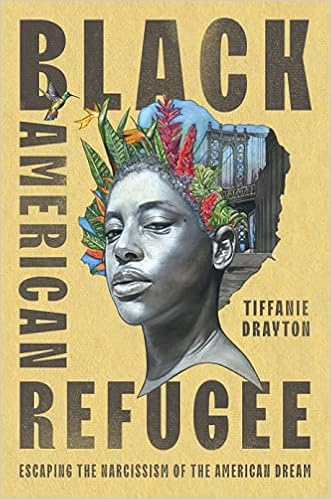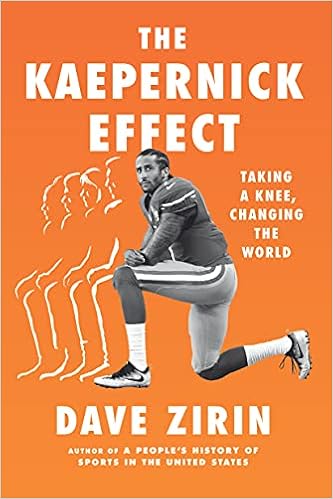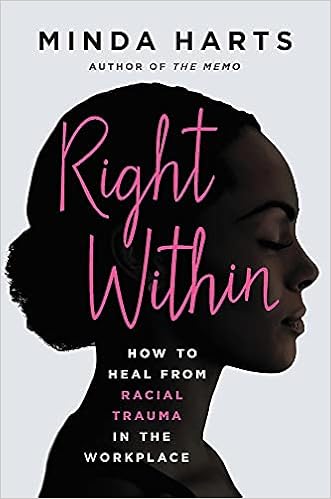Welcome to the University of Iowa Library’s virtual New Book Shelf. Here we will present new titles for you to browse and check out. Titles listed here will be monographs published in the current year. If you see a title you would like to borrow, please click the link below the item and sign in with your Hawk ID and Password to request a loan.
To Walk About in Freedom: The Long Emancipation of Priscilla Joyner

The extraordinary life of Priscilla Joyner and her quest―along with other formerly enslaved people―to define freedom after the Civil War.
Priscilla Joyner was born into the world of slavery in 1858 North Carolina and came of age at the dawn of emancipation. Raised by a white slaveholding woman, Joyner never knew the truth about her parentage. She grew up isolated and unsure of who she was and where she belonged―feelings that no emancipation proclamation could assuage.
Her life story―candidly recounted in an oral history for the Federal Writers’ Project―captures the intimate nature of freedom. Using Joyner’s interview and the interviews of other formerly enslaved people, historian Carole Emberton uncovers the deeply personal, emotional journeys of freedom’s charter generation―the people born into slavery who walked into a new world of freedom during the Civil War. From the seemingly mundane to the most vital, emancipation opened up a myriad of new possibilities: what to wear and where to live, what jobs to take and who to love.
Although Joyner was educated at a Freedmen’s Bureau school and married a man she loved, slavery cast a long shadow. Uncertainty about her parentage haunted her life, and as Jim Crow took hold throughout the South, segregation, disfranchisement, and racial violence threatened the loving home she made for her family. But through it all, she found beauty in the world and added to it where she could.
Weaving together illuminating voices from the charter generation, To Walk About in Freedom gives us a kaleidoscopic look at the lived experiences of emancipation and challenges us to think anew about the consequences of failing to reckon with the afterlife of slavery.
https://search.lib.uiowa.edu/permalink/f/9i2ftm/01IOWA_ALMA21844813410002771
Better, Not Bitter: Living on Purpose in the Pursuit of Racial Justice

This inspirational memoir serves as a call to action from prison reform activist Yusef Salaam, of the Exonerated Five, that will inspire us all to turn our stories into tools for change in the pursuit of racial justice.
They didn’t know who they had.
So begins Yusef Salaam telling his story. No one’s life is the sum of the worst things that happened to them, and during Yusef Salaam’s seven years of wrongful incarceration as one of the Central Park Five, he grew from child to man, and gained a spiritual perspective on life. Yusef learned that we’re all “born on purpose, with a purpose.” Despite having confronted the racist heart of America while being “run over by the spiked wheels of injustice,” Yusef channeled his energy and pain into something positive, not just for himself but for other marginalized people and communities.
Better Not Bitter is the first time that one of the now Exonerated Five is telling his individual story, in his own words. Yusef writes his narrative: growing up Black in central Harlem in the ’80s, being raised by a strong, fierce mother and grandmother, his years of incarceration, his reentry, and exoneration. Yusef connects these stories to lessons and principles he learned that gave him the power to survive through the worst of life’s experiences. He inspires readers to accept their own path, to understand their own sense of purpose. With his intimate personal insights, Yusef unpacks the systems built and designed for profit and the oppression of Black and Brown people. He inspires readers to channel their fury into action, and through the spiritual, to turn that anger and trauma into a constructive force that lives alongside accountability and mobilizes change.
This memoir is an inspiring story that grew out of one of the gravest miscarriages of justice, one that not only speaks to a moment in time or the rage-filled present, but reflects a 400-year history of a nation’s inability to be held accountable for its sins. Yusef Salaam’s message is vital for our times, a motivating resource for enacting change. Better, Not Bitter has the power to soothe, inspire and transform. It is a galvanizing call to action.
https://search.lib.uiowa.edu/permalink/f/9i2ftm/01IOWA_ALMA21842905370002771
Chained to History: Slavery and US Foreign Relations to 1865

In Chained to History, Steven J. Brady places slavery at the center of the story of America’s place in the world in the years prior to the calamitous Civil War. Beginning with the immediate aftermath of the War of the American Revolution, Brady follows the military, economic, and moral lines of the diplomatic challenges of attempting to manage, on the global stage, the actuality of human servitude in a country dedicated to human freedom. Chained to History shows how slavery was interwoven with America’s foreign relations and affected policy controversies ranging from trade to extradition treaties to military alliances.
Brady highlights the limitations placed on American policymakers who, working in an international context increasingly supportive of abolition, were severely constrained regarding the formulation and execution of preferred policy. Policymakers were bound to the slave interest based in the Democratic Party and the tortured state of domestic politics bore heavily on the conduct of foreign affairs. As international powers not only abolished the slave trade but banned human servitude as such, the American position became untenable.
From the Age of Revolutions through the American Civil War, slavery was a constant factor in shaping US relations with the Atlantic World and beyond. Chained to History addresses this critical topic in its complete scope and shows the immoral practice of human bondage to have informed how the United States re-entered the community of nations after 1865.
https://search.lib.uiowa.edu/permalink/f/9i2ftm/01IOWA_ALMA21842987860002771
Fear of Black Consciousness

The Silent Shore: The Lynching of Matthew Williams and the Politics of Racism in the Free State

The definitive account of the lynching of twenty-three-year-old Matthew Williams in Maryland, the subsequent investigation, and the legacy of “modern-day” lynchings.
On December 4, 1931, a mob of white men in Salisbury, Maryland, lynched and set ablaze a twenty-three-year-old Black man named Matthew Williams. His gruesome murder was part of a wave of silent white terrorism in the wake of the stock market crash of 1929, which exposed Black laborers to white rage in response to economic anxieties. For nearly a century, the lynching of Matthew Williams has lived in the shadows of the more well-known incidents of racial terror in the deep South, haunting both the Eastern Shore and the state of Maryland as a whole. In The Silent Shore, author Charles L. Chavis Jr. draws on his discovery of previously unreleased investigative documents to meticulously reconstruct the full story of one of the last lynchings in Maryland.
Bringing the painful truth of anti-Black violence to light, Chavis breaks the silence that surrounded Williams’s death. Though Maryland lacked the notoriety for racial violence of Alabama or Mississippi, he writes, it nonetheless was the site of at least 40 spectacle lynchings after the abolition of slavery in 1864. Families of lynching victims rarely obtained any form of actual justice, but Williams’s death would have a curious afterlife: Maryland’s politically ambitious governor Albert C. Ritchie would, in an attempt to position himself as a viable challenger to FDR, become one of the first governors in the United States to investigate the lynching death of a Black person. Ritchie tasked Patsy Johnson, a member of the Pinkerton detective agency and a former prizefighter, with going undercover in Salisbury and infiltrating the mob that murdered Williams. Johnson would eventually befriend a young local who admitted to participating in the lynching and who also named several local law enforcement officers as ringleaders. Despite this, a grand jury, after hearing 124 witness statements, declined to indict the perpetrators. But this denial of justice galvanized Governor Ritchie’s Interracial Commission, which would become one of the pioneering forces in the early civil rights movement in Maryland.
Complicating historical narratives associated with the history of lynching in the city of Salisbury, The Silent Shore explores the immediate and lingering effect of Williams’s death on the politics of racism in the United States, the Black community in Salisbury, the broader Eastern Shore, the state of Maryland, and the legacy of “modern-day lynchings.”
https://search.lib.uiowa.edu/permalink/f/9i2ftm/01IOWA_ALMA21842987980002771
Black American Refugee: Escaping the Narcissism of the American Dream

After following her mother to the US at a young age to pursue economic opportunities, one woman must come to terms with the ways in which systematic racism and resultant trauma keep the American Dream inaccessible to Black people.
In the early ’90s, young Tiffanie Drayton and her siblings left Trinidad and Tobago to join their mother in New Jersey, where she’d been making her way as a domestic worker, eager to give her children a shot at the American Dream. At first, life in the US was idyllic. But chasing good school districts with affordable housing left Tiffanie and her family constantly uprooted–moving from Texas to Florida then back to New Jersey. As Tiffanie came of age in the suburbs, she began to ask questions about the binary Black and white American world. Why were the Black neighborhoods she lived in crime-ridden, and the multicultural ones safe? Why were there so few Black students in advanced classes at school, if there were any advanced classes at all? Why was it so hard for Black families to achieve stability? Why were Black girls treated as something other than worthy?
Ultimately, exhausted by the pursuit of a “better life” in America, twenty-year old Tiffanie returns to Tobago. She is suddenly able to enjoy the simple freedom of being Black without fear, and imagines a different future for her own children. But then COVID-19 and widely publicized instances of police brutality bring America front and center again. This time, as an outsider supported by a new community, Tiffanie grieves and rages for Black Americans in a way she couldn’t when she was one.
An expansion of her New York Times piece of the same name, Black American Refugee examines in depth the intersection of her personal experiences and the broader culture and historical ramifications of American racism and global white supremacy. Through thoughtful introspection and candidness, Tiffanie unravels the complex workings of the people in her life, including herself, centering Black womanhood, and illuminating the toll a lifetime of racism can take. Must Black people search beyond the shores of the “land of the free” to realize emancipation? Or will the voices that propel America’s new reckoning welcome all dreamers and dreams to this land?
https://search.lib.uiowa.edu/permalink/f/9i2ftm/01IOWA_ALMA21842987890002771
The Kaepernick Effect: Taking a Knee, Changing the World

In 2016, amid an epidemic of police shootings of African Americans, the celebrated NFL quarterback Colin Kaepernick began a series of quiet protests on the field, refusing to stand during the U.S. national anthem. By “taking a knee,” Kaepernick bravely joined a long tradition of American athletes making powerful political statements. This time, however, Kaepernick’s simple act spread like wildfire throughout American society, becoming the preeminent symbol of resistance to America’s persistent racial inequality.
Critically acclaimed sports journalist and author of A People’s History of Sports in the United States, Dave Zirin chronicles “the Kaepernick effect” for the first time, through interviews with a broad cross-section of professional athletes across many different sports, college stars and high-powered athletic directors, and high school athletes and coaches. In each case, he uncovers the fascinating explanations and motivations behind a mass political movement in sports, through deeply personal and inspiring accounts of risk-taking, activism, and courage both on and off the field.
A book about the politics of sport, and the impact of sports on politics, The Kaepernick Effect is for anyone seeking to understand an essential dimension of the new movement for racial justice in America.
https://search.lib.uiowa.edu/permalink/f/9i2ftm/01IOWA_ALMA21842906180002771
Right Within: How to Heal from Racial Trauma in the Workplace

From the powerhouse author of The Memo, the essential self-help book for women of color to heal—and thrive—in the workplace
In workplaces nationwide, women of color need frank talk and honest advice on how to deal with microaggressions, heal from racialized trauma, and find relief from invisible workplace burdens. Filled with Minda Harts’s signature wit and warmth, Right Within offers strategies for women of color to speak up during racialized moments with managers and clients, work through past triggers they may not even know still cause pain, and reframe past career disappointments as opportunities to grow into a new path. Through action points, exercises, and clear-eyed coaching, Harts encourages women to summon hidden reserves of strength and courage. She includes advice from therapists and faith leaders of color on a full range of ways to heal. Right Within will help women of color strengthen their resolve across corporate America, ensuring that we can all, finally, rise together.
https://search.lib.uiowa.edu/permalink/f/9i2ftm/01IOWA_ALMA21842905670002771
Against White Feminism: Notes on Disruption

A radically inclusive, intersectional, and transnational approach to the fight for women’s rights.
Upper-middle-class white women have long been heralded as “experts” on feminism. They have presided over multinational feminist organizations and written much of what we consider the feminist canon, espousing sexual liberation and satisfaction, LGBTQ inclusion, and racial solidarity, all while branding the language of the movement itself in whiteness and speaking over Black and Brown women in an effort to uphold privilege and perceived cultural superiority. An American Muslim woman, attorney, and political philosopher, Rafia Zakaria champions a reconstruction of feminism in Against White Feminism, centering women of color in this transformative overview and counter-manifesto to white feminism’s global, long-standing affinity with colonial, patriarchal, and white supremacist ideals.
Covering such ground as the legacy of the British feminist imperialist savior complex and “the colonial thesis that all reform comes from the West” to the condescension of the white feminist–led “aid industrial complex” and the conflation of sexual liberation as the “sum total of empowerment,” Zakaria follows in the tradition of intersectional feminist forebears Kimberlé Crenshaw, Adrienne Rich, and Audre Lorde. Zakaria ultimately refutes and reimagines the apolitical aspirations of white feminist empowerment in this staggering, radical critique, with Black and Brown feminist thought at the forefront.
https://search.lib.uiowa.edu/permalink/f/9i2ftm/01IOWA_ALMA21842905580002771